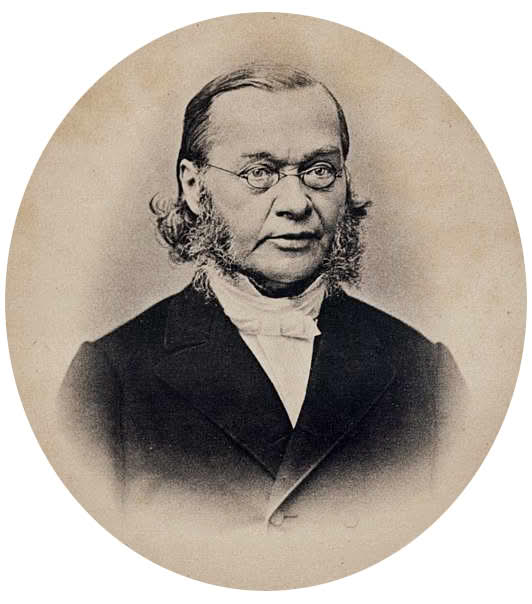
The E. W. HENGSTENBEEG Collection
Ernst Wilhelm Theodor Herrmann Hengstenberg (1802–1869)
Ernst Wilhelm Theodor Herrmann Hengstenberg was a prominent German Lutheran churchman and neo-Lutheran theologian, renowned for his scholarly contributions to biblical studies and theology. Born on October 20, 1802, in the town of Fröndenberg in Westphalia, Hengstenberg hailed from an esteemed family with strong religious roots. His father, Johann Heinrich Karl Hengstenberg, was a distinguished minister of the Reformed Church and head of the Fröndenberg convent of canonesses. His mother was Wilhelmine Bergh.
Hengstenberg's early education was guided by his father, fostering his interest in languages, philosophy, and philology. He displayed remarkable talent early on, winning a prize for his edition of the Arabic Mu'allaqat of Imru' al-Qais and translating Aristotle's Metaphysics into German. In 1819, he entered the University of Bonn, where he studied Oriental languages under Georg Wilhelm Freytag and church history with Johann Karl Ludwig Gieseler. His academic pursuits soon expanded into philosophy and philology.
Financial difficulties initially hindered his theological studies under notable scholars such as Neander and Tholuck in Berlin, but he soon began to dedicate himself to biblical studies, which became his life's work. In 1824, Hengstenberg became a privatdozent at the University of Berlin, earning recognition for his fervent evangelical faith and opposition to rationalist trends in biblical criticism.
In 1826, he was appointed as a professor extraordinarius in theology, and by 1828, he became a full professor (ordinarius). Hengstenberg was also the editor of the influential Evangelische Kirchenzeitung, a publication known for its orthodox stance and vigorous theological debates.
His major works include Christologie des Alten Testaments, Beiträge zur Einleitung in das Alte Testament, Die Bücher Moses und Aegypten, and his extensive commentaries on the Psalms, Revelation, and the Gospel of John. Hengstenberg was a staunch defender of traditional biblical authorship and historicity, often engaging in controversial debates about biblical criticism and the integrity of Scripture.
Throughout his life, Hengstenberg remained committed to orthodox Lutheran doctrine, and his writings reflect a rigorous and conservative approach to biblical interpretation. His works have had a lasting influence on evangelical and conservative biblical scholarship.
Hengstenberg passed away on May 28, 1869, in Berlin, leaving behind a legacy of profound scholarly contributions that continue to be studied and debated within theological circles.

